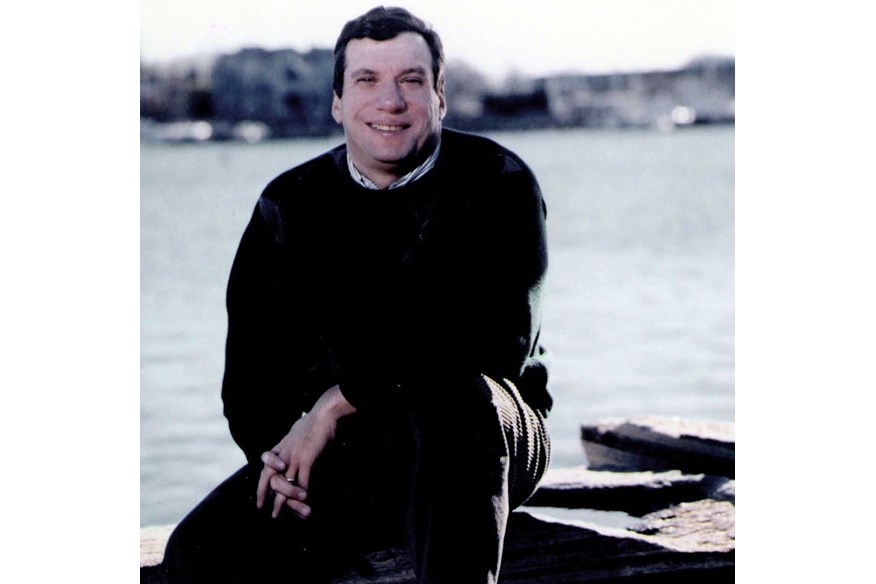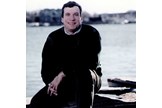July26 Feinstein Interview
Last updated:
John Feinstein has written some of the best-selling books in golf, including A Good Walk Spoiled and The Majors.
His latest title looks are the nail-biting world of the PGA Tour’s Q School, where a tap-in putt can mean the different between a chance at a millionaire’s lifestyle on the PGA Tour, or another year struggling to get into the big time.
We spoke exclusively to Feinstein to find out a bit more about Q School, and you you can read an exclusive extract from the book in the latest issue of Golf World magazine, on sale now.
Sum up Q School in one word.
Gruelling.
Is Q School fair – or is there a better way of doing it?
Q-School is fair. Most players (973 out of 1,205 in 2005) have to start at first stage and that means they have to get through 14 rounds of mind-bending golf to get to the tour. Even if you only have to play finals – and that’s just a handful of guys – it is six rounds under very difficult conditions. I DO think adding the top 20 off the Nationwide money list to those who make the tour is a very good idea because it gives players two opportunities to get to the tour.
What’s the most heart-wrenching story you’ve heard from Q School?
Has to be Jaxon Brigman, who shot 65 the last day in 1999 to make it to the tour right on the qualifying number. He signed his card and went off to celebrate only to have a tour official track him down 20 minutes later because the player keeping his card—Jay Hobby—had written down a four for him on 13 when he had made a three. Brigman didn’t catch the mistake and signed for 66 when he had shot 65. He missed the tour by that one shot and has never made it there since.
And what’s the most heartening? Ron Whittaker. He missed second stage eight years in a row – four times by one shot. In ’05 at the age of 34 he told his wife he was going to give it one last shot and if he didn’t make it he was going to retire because they wanted to start a family and he needed to make some money. At the end of the last day he thought he’d missed by one shot, went back to his hotel to pack and move on with his life. His wife called and said, ‘my brother is on line, he says you made it.’ Impossible, he thought, but he went down to the hotel manager, got on line and, sure enough, two guys in the last group had shot 78 and he made it on the number. He called his wife back to tell her and she said, “that’s great news. I guess this is as good a time as any to tell you: I’m pregnant.”
Talk about your life changing in five minutes! He then made it through the finals to the tour. I asked him how he slept at night and he said: “Easy, Ambien and Pepo-Bismol.”
What’s tougher to win – a Major, or Q School?
Tougher to WIN a major because the winner at q-school is usually so comfortably inside the top 30 on the last day that he’ll make the tour if he’s still standing on the 18th green. If you are right around that cut number though, players will tell you there is no pressure quite like that because the next year of your life – at least, ask Jaxon Brigman – is at stake.
It’s obviously an emotion-charged event, so did you get attached to particular players – rooting for some, hoping others might falter?
Can’t think of anyone I would root against. There aren’t too many bad guys in golf, especially at that level. I DID get attached to a number of them: some young – guys like Nick Thompson, B.J. Staten, Bill Haas and Peter Tomasulo—some old: Larry Mize, Steve Stricker, Dan Forsman – some in the middle: Whittaker, Garrett Frank, Brett Wetterich.
You talk about the guys who go back to school year after year after year… don’t you think they should give up on the dream and save themselves the disappointment?
I think each player has to make his own decision on when it is time. But when they see players like Wetterich – at Q-school in 2005, struggling to make a living – a Ryder Cupper and millionaire by the end of 2206 – they all think they can be that story. That’s what keeps so many of them coming back; that and the fact that this has been their life-long dream and that’s very tough to give up.
Did you ever think Brett Wetterich would go on to achieve what he did in his first year on Tour?
No. He was lucky to make it back (he’d been on tour twice before) in 2005. He almost lost a ball on #10 on the last day – his AGENT found it and if I hadn’t been right there, I would have REALLY wondered about that – and made it right on the number, so I had no idea he would blossom into a star during the next year.
Would you like to see every player on the PGA Tour go through the Q School experience – specifically Tiger and Phil?
Tiger and Phil certainly earned the right to miss Q-school with their play so early in their careers. But I think most players agree THEY missed out on something – Tom Watson calls it “A rite of passage,” by not going to q-school. Plus, they both feel left out during rain delays in the locker room when guys sit around and tell q-school stories – which they all do.
How do you go about getting the level of detail in the book – do you spend more time observing, or interviewing?
I do a lot of both. I DO try to watch a guy play on a day when I’m going to talk to him so he has the sense that I’m not just lounging around waiting for him and because you always pick up really good tid-bits when you’re out on the golf course: like Jay Haas breaking down AFTER the TV cameras went off following Bill’s final clinching putt in ’05 to make the tour.
You’ve written about lots of sports – are golfers easier to deal with than, say, tennis players? Do they have better stories? Are they more open and honest than other sportsmen?
Golfers are the best story-tellers, I think, because the sport is so mental. No one tries to stop you from doing what you’re doing in golf – no defence – so when you succeed or fail it is on you. That leads to great story-telling. Because most golfers have known failure, they tend to be easier to deal with than most athletes.
Are the big name players in other sports as difficult to get one-on-one time with as the big names in golf?
More difficult in most cases. I find virtually all golfers—Tiger being an exception; Monty another when he’s in a bad mood—to be quite accessible almost all the time.
What’s your next golf project?
I’m hoping to do a book next year on 2003 – the wildest year ever in major championship golf. Four first-time winners including two who had never won ANY tournament at all and one who was not only a rookie but most of his fellow-players could not have picked him out of a lineup before he won The Open Championship.

